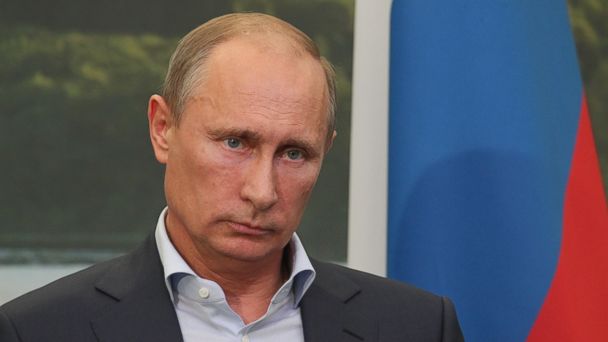How Could the G-8 Kick Russia Out?

Russian President Vladimir Putin gives a press conference on the final day of the G8 Summit at Lough Erne resort in Enniskillen, Northern Ireland in this June 18, 2013, file photo. Sasha Mordovet/Getty Images.
The Obama administration has said one of its most powerful tools for punishing Russia's violations of Ukrainian sovereignty is the threat of kicking Russia out of the Group of 8 industrialized nations or G-8.
A senior administration official warned Sunday that Russia would "not have a role to play" in the group if it continues its incursion into the Ukrainian region of Crimea.
But how would kicking Russia out actually work?
There's no formal enforcement mechanism for removing a country from the G-8, which has been meeting since 1975, so all the other countries have to do is not invite Russia to their party.
If the other seven countries agreed to leave Russia out, they could simply resume meeting as the G-7, which is what they were before Russia joined the group in 1998, said Bruce Jones, a former senior adviser for both the World Bank and the United Nations.
One potential roadblock: Germany appeared to have some reservations, with Foreign Minister Frank-Walter Steinmeier warning German broadcaster ARD against giving up the only format "in which we in the West can speak directly with Russia."
Failing broad consensus, the United States might also just start skipping the party if Russia is going to be there, Jones added.
"The United States can make it happen simply by fiat," he said. "And that would de facto kill the G-8 no matter what anybody else believed."
Jones added that expulsion from the G-8 would only really hurt Putin if paired with tough sanctions on Russian businesses and individuals. After all, Putin skipped the 2012 summit that was held at Camp David, citing the need to finish forming a new cabinet of ministers.
So while the United States might be keen on disinviting Putin from the party, he's shown in the past that he's fine staying home.